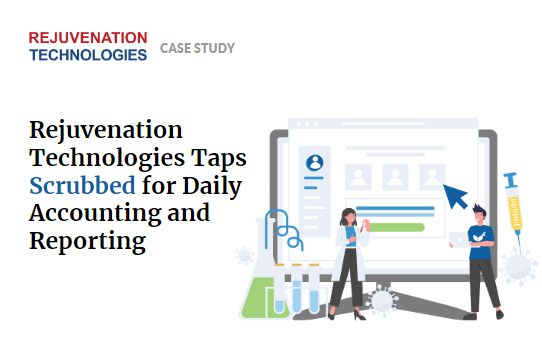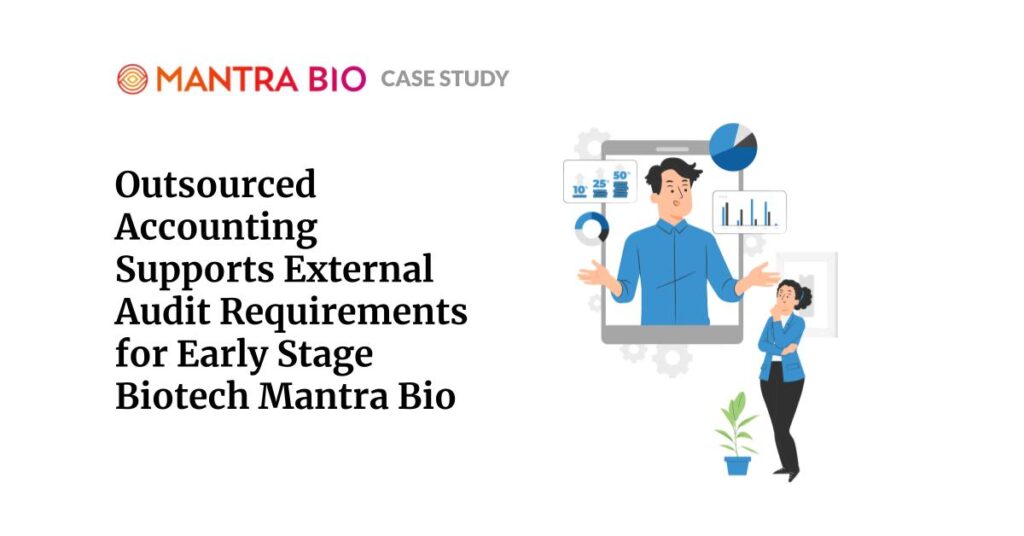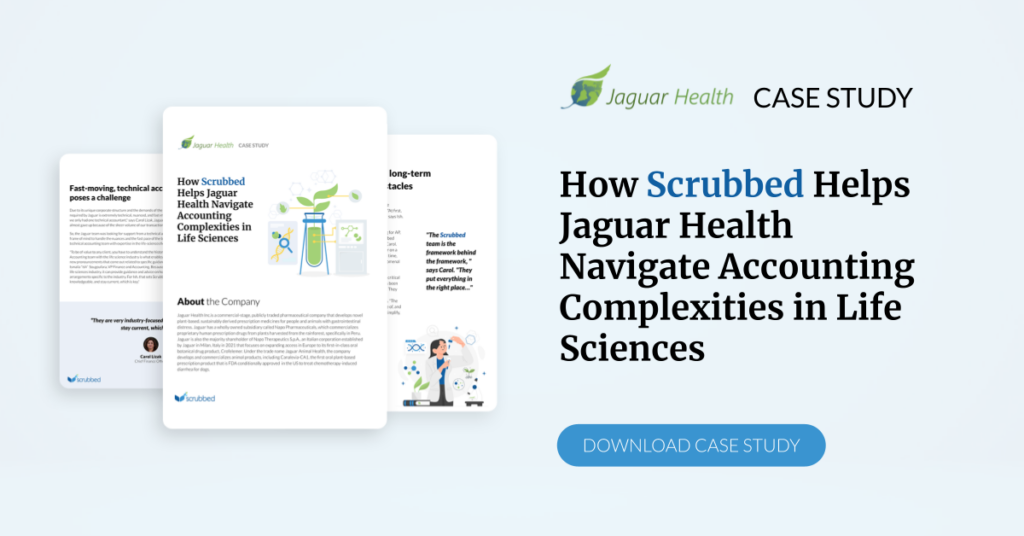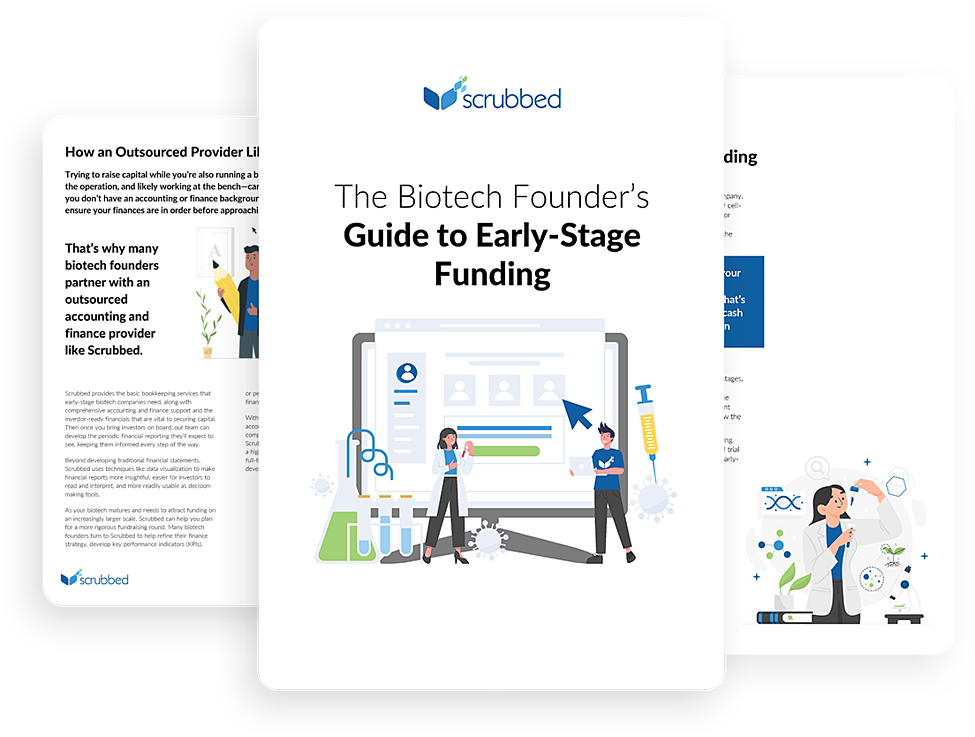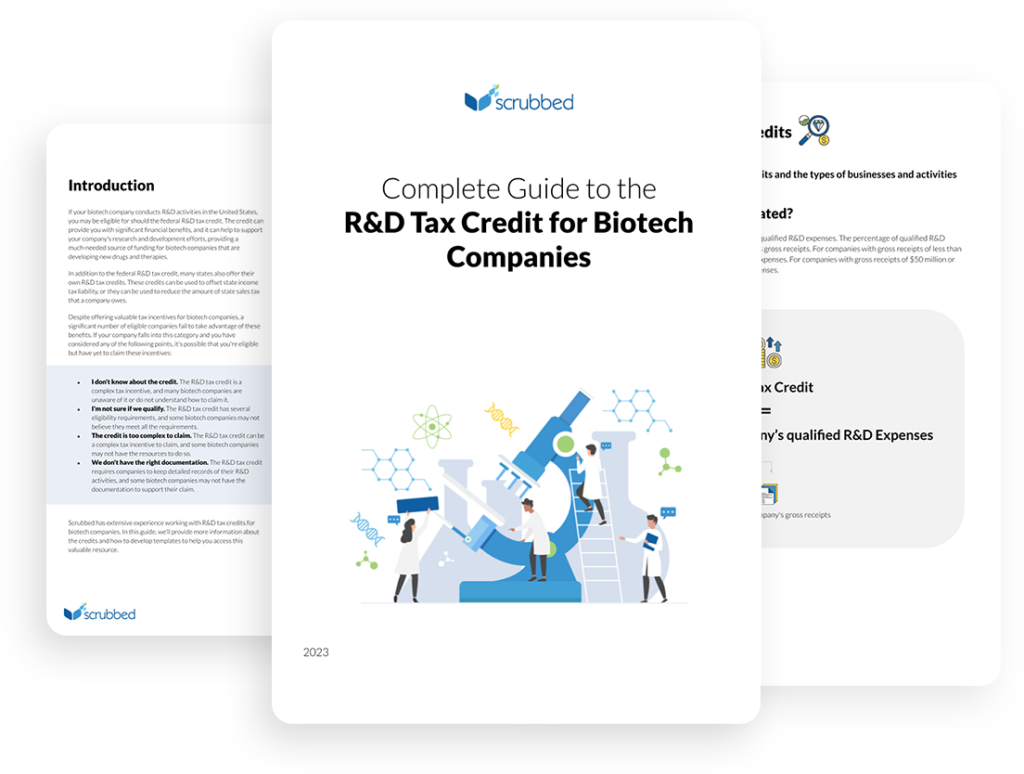Life Sciences and Biotechnology Accounting
Transform your financial operations with expert accounting services designed for biotechnology and life sciences companies.
Managing Finances in Life Sciences and Biotechnology Companies
Biotechnology accounting is more complex than other industries thanks to long R&D cycles and strict regulations. Meanwhile, firms often work with lean back-office teams who need streamlined processes to maximize efficiency but also have to manage evolving regulations and compliance requirements for biotechnology accounting.
At Scrubbed, we understand that whether you’re developing new pharmaceuticals, medical devices, or gene therapies, your industry can be unpredictable.
At Scrubbed, we understand that whether you’re developing new pharmaceuticals, medical devices, or gene therapies, your industry can be unpredictable. Our outsourced accounting for biotech companies streamlines operations and ensures compliance, so you can focus on advancing scientific innovation.
How Expert Biotechnology Accounting Can Help You
At Scrubbed, we know how important it is to meet your industry’s complex compliance requirements and run your business more efficiently. Whether your CFO needs support or you want to outsource your entire biotechnology accounting and finance function, we have the right team for you.
Depending on the stage and needs of your business, we can provide the following services:

Featured Work
Case Study
“Scrubbed matched up with everything Rejuvenation Technologies was looking for in an outsourced accounting partner,” said Director of Finance and Administration Robin Holbrook.
Case Study
Case Study
Case Study
Unlike less capital-intensive industries, the biotech field isn’t one where a founder’s own assets can get the business off the ground (at least not in most cases). More often, startup funds must come from seed capital.
Case Study
Unlike less capital-intensive industries, the biotech field isn’t one where a founder’s own assets can get the business off the ground (at least not in most cases). More often, startup funds must come from seed capital.
Ed O'Sullivan

“The Scrubbed team is the framework behind the framework. They put everything in the right place…”
Carol Lizak

Ismaila Sougoufara

Featured Insights
CASE STUDY
How Scrubbed Helps Jaguar Health Navigate Accounting Complexities in Life Sciences
Meet Our Biotechnology Experts

Kevin Musni
Senior Manager
Kevin has more than 10 years of professional experience focusing on general and real estate accounting, budget and cash flow analyses, and financial modeling. His expertise is on business process optimization, systems migration, and developing reasonable business policies.
FAQ
Outsourcing accounting in the biotech industry involves partnering with an external firm to handle financial tasks such as bookkeeping, financial reporting, compliance, R&D cost tracking, and tax optimization. The right outsourced accounting firm for your business will include accountants with deep expertise in the biotech industry, including navigating long R&D cycles, ensuring regulatory compliance, and preparing investor-ready financial reports. Because outsourced services are scalable, you can adjust the service levels according to the needs of the business.
Fractional accounting support offers an additional layer of flexibility and expertise that can be especially helpful when your firm is growing quickly. A fractional finance team or professional can bring specific expertise required for various phases, such as financial modeling help when accounting for a complex transaction or support for raising investor capital. You can access the necessary high-level financial skills on demand without the long-term commitment of hiring full-time staff for whom there isn't a permanent need.
Learn more about our services for life sciences and biotechnology
The financial landscape is quite complicated for biotech companies. The industry must abide by strict regulatory requirements, there are complicated revenue recognition rules under ASC 606, and the need to identify and maximize relevant and evolving R&D tax credits. Outsourcing some or all of the company’s accounting functions means you are hiring experienced professionals who can provide accurate financial reporting and mitigate the many risks. For early-stage or lean teams in particular, outsourcing can also be much more cost effective than hiring and retaining an in-house accounting department.
Outsourcing offers several advantages to biotech companies:
- Expertise in biotech accounting: Outsourcing gives you access to accountants with in-depth knowledge of biotech-specific financial regulations, tax incentives, evolving compliance requirements, and R&D and clinical trial cost tracking.
- Increased efficiency and scalability as projects grow: An outsourced team can adjust in size and expertise based on project requirements, the speed of growth, or business expansion.
- Improved decision-making and financial insights: Biotech companies can benefit from more accurate and timely financial reports and performance analysis that help leaders make better informed, data-driven decisions.
- Focus on core business: Delegating accounting tasks can give your internal teams more time to focus on innovation, technology development, and driving environmental impact.
- Cost control: Outsourcing reduces overheads related to your in-house accounting team and can lower the cost of software, compliance, and reporting.
Outsourced accounting professionals can help your biotech streamline accounting processes for R&D expenses. For instance, outsourced accountants can help ensure you accurately classify and allocate expenses to make sure you comply with industry-specific accounting standards. They also help you maintain the detailed documentation you need for qualified R&D expenses, such as payroll records, supply invoices, and contract research agreements, to maximize your tax credits and make sure you’re ready for audit.
Your outsourced accounting team stays current with the latest federal, state, and local requirements for biotech so that you stay compliant and reduce the risk of penalties. Expert accountants can help you set up the robust internal controls, regular audits, and systems for retaining comprehensive documentation that will protect your business from legal and financial repercussions.
Outsourced accounting firms like Scrubbed understand the importance of data security and use enterprise-grade security approaches including encryption protocols, access controls, and regular audits to protect your intellectual property and clinical trial data. They also keep up to date with changing data protection regulations to ensure that you are storing and using sensitive information appropriately.
Biotech leaders express concern about integrating outsourced providers into existing systems and processes and potential data security risks. It's a complicated field, and leaders want to know that they're dealing with professionals who have expertise in the nuances and pitfalls of accounting for biotech companies.
Acknowledging the concerns can help your company screen potential partners and make sure that they can meet the demands of your business.
You should consider outsourcing as an option when:
- Your company is scaling rapidly or preparing for funding rounds, IPO, or M&A activity: Outsourcing is an efficient way to bring on extra accounting staff quickly to meet the immediate needs.
- You need expertise in biotech-specific regulations, R&D cost tracking, or compliance: Biotech accounting can be complicated, but outsourcing gives you access to experienced professionals who can help you maximize incentives, reduce the risk of penalties for non-compliance, and optimize your resource allocation.
- Limited Internal Resources: If your company has a small accounting team or lacks specialized accounting expertise, outsourcing can be a way for you to quickly bring in skilled professionals who can handle complex financial tasks.
Outsourced accounting teams provide tailored financial insights that can help you assess project profitability, maximize cash flow, and provide data and insight for strategic choices like acquisitions or fundraising. Delegating accounting tasks also frees up time for your internal team to focus on innovation without sacrificing compliance and operational efficiency.
Start by identifying your company's accounting needs, such as bookkeeping, financial reporting, ASC 606 compliance, or managing R&D tax credits. Then, evaluate your potential providers based on how much experience they have in the biotech industry and with the unique challenges and regulatory requirements your business faces. Review client testimonials and references from similar biotech companies to get a sense of their track record and expertise. Finally, confirm that their services are scalable to support your business as it grows, and that budgets and service levels are in line with your goals.
Want to learn more?
Let’s discuss how we can help by managing your day-to-day accounting needs, or taking on a larger financial management role, so you can continue to deliver on your mission-critical goals.

